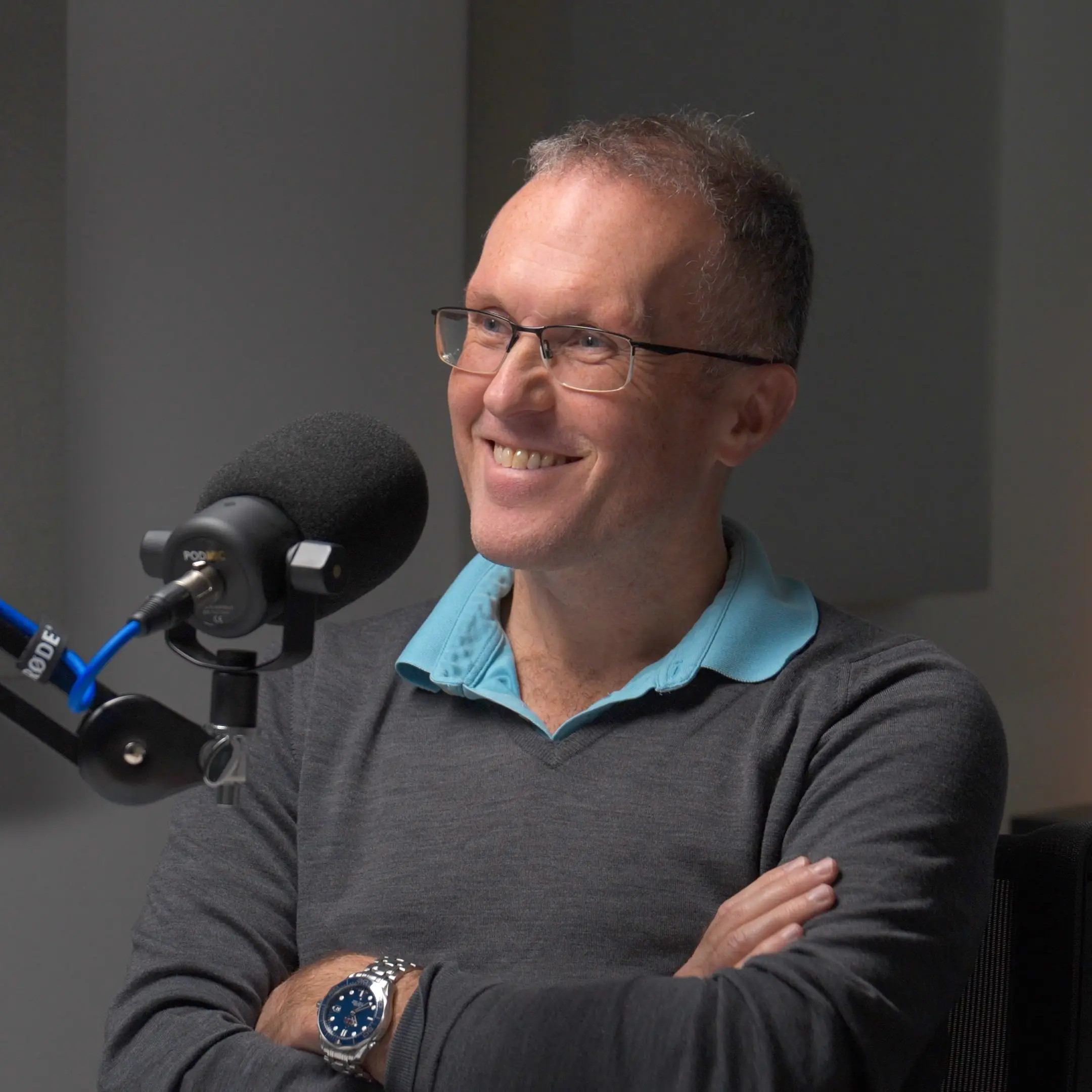From Research to Reality with Cici Muldoon
.png)
.png)

In this episode of Oxford+, host Susannah de Jager is joined by guest Cici Muldoon, the founder and CEO of Veritie Group as they touch on the intersection of science and society, the role of entrepreneurship, and the need for support and funding in the startup ecosystem.
They also discuss the challenges that Cici faced in setting up her company and the importance of integrity and transparency in scientific research. Cici also emphasises the significance of making a positive impact and leaving a legacy through scientific innovation.
- (0:12) Introduction
- (1:13) Founding Veritie Group
- (6:31) Pivoting to medical diagnostics
- (13:26) Challenges in the startup ecosystem
- (27:47) Audience Q&A
Cici Muldoon is the founder and CEO of Veritie Group, an Oxford-based technology company specialising in the spectroscopic analysis of highly complex dilute liquids. Cici holds a degree in physics and finance from Princeton University, and a doctorate in experimental atomic and laser physics from Oxford University. She is also a qualified Oenophile, an amateur ballerina and a classic car judge.
[00:00:06] Susannah de Jager: Welcome to this episode of Oxford+. This episode was recorded in front of a live studio audience at Modern Art Oxford. My guest is Cici Muldoon. Cici holds a degree in physics and finance from Princeton University and a doctorate in experimental atomic and laser physics from Oxford University. Cici is the founder and CEO of Verity Group, an Oxford based technology company specialising in the spectroscopic analysis of highly complex dilute liquids. Verity Group is currently creating a low cost, easy to use point of care solution that uses a simple urine sample to identify cancer and other illnesses as early as possible. A qualified Oenophile, Cici has completed the bachelor level WSET Diploma in Wines and Spirits. She's also an amateur ballerina and a classic car judge focusing on the Ferrari mark and judging at numerous international events. Cici speaks five languages and is originally from Guadalajara, Mexico.
Cici, thank you for joining us this evening.
So I've described your company Verity, but you've actually founded two companies with this particular technology. Can you tell us a little bit about the first one? Because I feel like it's interesting.
[00:01:24] Cici Muldoon: Yes, absolutely. So basically I have gone in life a circuitous route via quantum computing in my PhD to analysing wine, to analysing urine. Basically, the reason for that was I specialised in the interaction of matter and light in my PhD, and it's still a huge passion for me. It's fascinating what happens when light interacts with molecules, with atoms. I ended up working in spectroscopy post PhD briefly, and one day on the way to work, I had this question pop into my head, which was, why don't we use spectroscopy, which is essentially the study of matter with light to look for cork taint in unopened bottles of wine and the small niggling thing became an obsession of mine.
So, I used to run the wine club at Oxford when I did my PhD. I was captain of the blind tasting team, so queen of the nerds, and I have a particularly sensitive nose to cork taint. Which is actually a very small innocuous little molecule called 2,4,6-trichloroanisole, which actually blocks a neural pathway in your brain and makes you smell wet dog basement and disgustingness in wine and it ruins many bottles and You don't know when you're going to get it and I thought to myself, well, it would be fantastic, why can't we test it without taking the cork out? So me being a little bit crazy, I ended up actually starting a company. Some of the people in this room, knew me back then and I was the crazy wine lady that went around Oxford and I figured out at that point, I'd done the research, that Raman spectroscopy was the way to go, this technique, which, Actually, it's quite old, so it's a technique that was developed in 1923, discovered by a man called Chandrasekhara Raman, who was the first Asian Nobel Prize in Physics, 1928. So that's how old we're talking, right? This stuff has been used since the 80s and 90s. It's a workhorse in pharma, in airport security, in defense, it's how they identify stuff and I'd figured out that Raman spectroscopy was a great way to look at aqueous complex mixtures and so off I went, basically to cut short so that you can ask me another question, off I went and I tried to get this company off the ground and it was really difficult because, what I was proposing to do was do R&D in industry, right? And so a lot of the answer I got was go do a postdoc, because basically it's not the spectroscopy that was the problem, it was the fact that there's a dark, curved, tinted piece of glass in between what you want to see and analyse and your spectrometer and basically I ended up doing something that is, for many years I was highly embarrassed about, but it's very unconventional, which is that I ended up funding it myself and the reason for that was because I had applied for an Innovate UK grant with my then PhD supervisor, who didn't think I was crazy, and we won the award. But, as for many cases, we didn't have the cash flow. So the project start date was ticking forward, and I found myself saying, well, now what? I was speaking to a lot of people, but all the VCs said, too much technical risk, you know, too early doors, all this, that, the other and finally, we had a Christmas dinner with my PhD supervisor and my family was around and my dad just turned around and said, for God's sake, let's just fund it ourselves and so we did. So I'm a little bit of a black sheep and an exception, I realise in this startup world, but it is a very difficult journey. I know this is not the question you asked me, but it is a really difficult thing to get something that is brave out there and prove it.
We did do that, five years on Verovin worked. We were analysing bottles of wine through the glass and correctly classifying them using machine learning and we could distinguish down to different chateaus, vintages, but we had three problems.
Problem one, the wine industry is a very heterogeneous one. So you've got people with big pockets at the bottom that wanted to do thousands of bottles per minute on a bottling line, the producers, we couldn't do that. The machine just doesn't work that way. Top end, we had people that wanted a really cheap, portable machine that you could use one on one, the merchants and we couldn't service everybody easily. It was a very complicated business model for a very heterogeneous industry.
Two, the fine wine industry, which is where our business case really was, actually doesn't want to know that there's a problem, because our main business case was we can weed out fake and faulty, particularly counterfeit wine. So we would train the algorithm and we would say, here's a bottle of Lafite 85, 52 percent Cabernet Sauvignon, 48 percent Merlot, metadata, metadata, metadata. Here's a hundred mystery bottles. Do they all cluster together? Do they not? And sometimes they wouldn't, and the fine wine industry was our main goal because we thought, well, they want to know that they've got lots of fake wine. Well, it turned out they didn't. So we built a fantastic technology solution platform consisting of hardware, software, machine learning, much overused term, but it is a real thing and it's not magic, for a customer that didn't want it.
And the third problem we had was a physics problem. It was that we could only see through 70 percent of the bottles that we tested. 30 percent of the time, and it wasn't predictable which 30%, the spectrometry would just get nothing out. So we turned around and said, you know what?
In this journey, we have tested all manner of highly complex dilute liquids. We tested olive oil, injectables, manuka honey, perfume and our chairman, Steve Davies, turned around to me and said, you've never wanted to look at blood and I said, no, quite frankly, no, because I don't want to be Liz Holmes. I mean, I already get the Theranos comparison all the time, but it planted the seed and off we went and we started looking into blood and soon thereafter, we sort of tripped upon a bunch of literature where people were using a variant of Raman Spectroscopy called Surface Enhanced Raman Spectroscopy, which is a little bit more complicated, but same idea and machine learning, emboldened by machine learning, because this is what's happening to these, you know, old tools in physics that are being emboldened by machine learning and they were correctly classifying urine as disease, non disease and there are papers all over the world, academic institutions, mainly, most of them in the US, China, South Korea, but everywhere and they're looking at pancreatic cancer versus prostate cancer, they're looking at hematuria, they're looking at UTIs, they're looking at gestational diabetes, you name it, people are using this technique. But it's all in academia. Pre-eclampsia is another one, which is a project that we're quite passionate about and we turned around and said, well, we've got this platform that we built for wine. Wine, 85 percent water, 12-14 percent ethanol, 1%, 1, 000 different organic molecules, which kind of all look alike. Urine? You know, 90 percent water and then lots of little organic molecules that all look alike, and we were like, yeah, they're actually not that different and at the end of the day, that's the real beauty of the technique, is that it doesn't really care what liquid it's looking at, what biofluid, it can be plasma, it can be saliva. The machine itself doesn't care, right? And the algorithm doesn't care what metadata it's getting. It doesn't care if it's looking for cancer of the left nostril because all you're doing is you're telling the machine, this is the metadata, learn on this.
[00:08:36] Susannah de Jager: It's really interesting, thank you, and the people it does matter to, and I know this cause I've looked on your website, we've spoken about it, we've spoken about the values within your company.
Those are hugely different applications and one of them has a sort of an impact and a legacy, which I know is something you're really passionate about and the other, quite frankly, it's very important to my own palate, but as you have pointed out, and indeed the industry pointed out, perhaps less required by society, if I were to put it that way. How do you feel it's different now that you're setting up a company that has those different qualities in terms of its application and their importance in society?
[00:09:10] Cici Muldoon: I mean, it is for me, it has been a transformational two years. It's been about two years since we decided to pivot and I know it sounds like a bit grandiose and exaggeration, but I feel like I found my calling in life, because my passion is for taking science out of the lab, like I want to take this great tool. I see, like, these two worlds waiting to collide. There's sort of the world of spectroscopy over here, with all the tools, and there's, like, the biotech, biomed world and they're just waiting, I think. So our goal is we want to displace wet chemistry with advanced photonics and machine learning, because most things nowadays, when you get a diagnosis, most of us in this room will have been touched by IVD and vitro diagnosis at some point in our lives, we have something diagnosed and it'll be either imaging or most likely a blood test, which means full venous blood sample, which hurts, requires a trained phlebotomist, is expensive, and then moreover that sample has to be transported to a lab to be tested in a lab. So all of that process is expensive. It's a weight on the healthcare system where there is one. It's costly in different ways for patient, payer and the physician. So we see that these two worlds coming together are a huge opportunity and for me, it's a personal passion to take science out. However, that said, obviously, you know, getting behind saving lives versus saving fake wine, you know, saving someone from drinking fake wine, absolutely, but with it comes huge responsibility and that's where the values come in because me telling you that your wine is plonk, whatever, but if I tell you that, you know, if I'm going to enable, have a technology that's going to enable a doctor to give an earlier diagnosis of whatever disease state it is that we might be looking at, and we do have focus areas by the way, but it's something that I feel ethically very responsible for and if anything, I think the experience of Elizabeth Holmes, whom I kind of, you know, through suppliers and through sort of personal connections, I sort of knew closely about, it just puts a huge shining light on the fact that science needs to be vetted, right? So one of our values is integrity. So, complete intellectual honesty. The science doesn't lie, and you don't lie about what the science says. I mean, everyone at work knows this and says it. Because when I did my PhD, I did an experiment where we were trapping single atoms. We were meant to trap single atoms, move them around to implement a quantum bit and I got to a point where I had built this experiment from scratch myself, and I trapped 1.5 atoms. I did all the calculations back and I got to 1.5, and I went to Axel, my supervisor, and I said, can I round down to one? And he said, Cici, what does 1.5 round to? Two. And that's what we published. But for all intents and purposes, had I gone in that paper and written one atom, who's gonna come and recreate that experiment, quantum optics, with all of the vacuum chamber and the optics and the electronics, and tell me that I was wrong?
So science, scientists have a huge responsibility to be ethical and to be transparent and to communicate. I, you know, I try to explain to people when they ask me, I say, do you have five minutes? Because I'll explain Raman Spectroscopy, I feel more comfortable if you do. So that's one of them. The other one we have is legacy, you know, I want to make a difference with this. I do believe it can actually really help in healthcare and I haven't drunk the Kool Aid, I just believe in, you know, it's profit driven philanthropy, right, in some way. It's doing some good, and then commitment, because it requires a huge amount of commitment. We're now a team of 16 people who I'm immensely proud of. One of them's in the audience. They are all really talented and actually much more accomplished than me. You know, there's a guy that used to run Point of Care at John Radcliffe, you know, somebody who is CFO of Siemens who's sitting in the audience somewhere, you know, very talented people and I feel that they need to all be committed to make this happen together to get it somewhere and then the last value, courage, because it takes a huge amount of guts to go up there and say, there is no pattern recognition based medical device on the market yet. Going to regulation, 510k, CAC mark, is a massive journey. Just getting samples, you know, that's, we've got a fully functional lab now that can handle, store, thaw, freeze, and test with our tech, human disease, human urine samples. But sourcing those samples is massively difficult. So, you know, the whole undertaking is so titanic that without courage and commitment, we wouldn't be able to do it.
[00:13:27] Susannah de Jager: We've spoken a bit about this, but you've just referenced a few of them through the conversation already, you know, the lab space that you've got, it wasn't just there, ready, waiting, and I'm sure lots of people will be familiar with this, but it had to be built, it had to be built bespoke, it had to be made, you wrote your own patent, you had the experience of people not kind of supporting the first application of your technology. Every time I speak to you, I feel like there's another reason that lesser people probably would have given up and on the one hand, that's kudos to you, on the other hand, if we're looking at the ecosystem, there is that question mark of, oh God, how do we make sure that more people can sort of slip through the proverbial net?
And I'd be really interested to hear your perspectives on perhaps some of the things that you found difficult that you just don't think needed to be, and that actually the university or the ecosystem could have been there either kind of supporting physically or with kind of lab space or with money, and I don't know if there's anything obvious to you?
[00:14:22] Cici Muldoon: I mean, the thing is I had a generation, I think, the current generation has a lot more support. I think there's a lot more going on from...
[00:14:29] Susannah de Jager: That's reassuring.
[00:14:30] Cici Muldoon: So, no, no, I mean, 'cause when I first tried to set VeriVin up, we were talking around 2017 was when I was going around trying...
[00:14:39] Susannah de Jager: Not that long ago.
[00:14:40] Cici Muldoon: Not that long ago, but the idea came much earlier. I then went off and did the WSET diploma 'cause I basically could, I didn't know how to start. I was like, you know, what do I do first? And how do you know? And how do I
[00:14:51] Susannah de Jager: that in itself is something I keep hearing. It's like people almost don't, you know, obviously we've got incubators, accelerators, but there needs to be more of a road map almost, like, where are you? Are you at idea stage? Are you at needing funding stage? Are you needing this? And just helping people with great ideas.
[00:15:07] Cici Muldoon: I mean with with entrepreneurship, and I've only, this is my second time doing something, obviously, so it's not like I speak from great experience, but we have a saying in Spanish that says, "Andando se hace camino", which means, walking you make the way and I think in some ways you just gotta go through it and learn from it, you know, there isn't a perfect magic, you know, equation. I do think, you know, we could improve probably the funding in the ecosystem a bit.
When I was trying to get VeriVin off the ground, I did go eventually to the incubator, to OUI and OUI suggested some really useful things, which was to apply for Innovate UK grant money and then they suggested some that weren't quite right, like go to VCs, for whom this was too much of a technical risk and we had one particular VC who reviewed the tech and they misunderstood a conceptual thing about how we look at spectra. So basically when we get our spectra from via wine, urine, whatever. We get the combined Raman Spectrum of all those thousand molecules kind of multiplied together and it's not like you can un multiply them and unpick them, because essentially what's happening is you're shining all this light in, all these molecules are, for a period of time, bouncing their photons off in their own way, each of them will give a chemical signature of their own and all those photons are traveling together to the detector, right? So it's not like you can unpick this one that came from there or there. You separate them by frequency, which is something called a diffraction grading, they land on the detector, and you can't un-multiply where they came from, right?
So what we do is, instead of trying to unpick them and look at single biomarkers or single molecules, we look at an ensemble of them, and we use machine learning to basically do a mathematical expression for this group of things. Point being that this person had understood that the photon from one molecule would basically affect the next molecule. He thought it was like a linear addition and when they sent me their sort of review of the points, it was like, green, green, green, and then it was red on the tech. But it was red on the tech for reasons that were like, he misunderstood physics and the problem I had is that then, I have heard that person then spoke to another VC, that we all, and then spoke to another one and then I heard it from OUI, that, you know, so it was okay, like, all these conversations have gone on and nobody, like, came to me.
[00:17:22] Susannah de Jager: Validated it.
[00:17:22] Cici Muldoon: Yeah, but look, it's really difficult with these things. I understand them because they're being asked to invest in stuff that is so out there, like quantum computing. If you asked me if I would invest in a quantum computing company, I'd be like, ciao baby, no way, no, like, and I did a PhD in it, right? And I think people just don't understand it at all. I mean, people use these terms like AI or machine learning or, you know, quantum computing, and they have not the first clue what a photon is. How can you possibly understand what quantum bit is if you don't...
[00:17:47] Susannah de Jager: So then taking that, you know, something that one has seen for instance, in Cambridge with R and Capital is that they have real brilliant scientists, you know, Nobel laureates. I was joking on a previous podcast and we were saying, you know, casually have a few Nobel laureates. But I have heard in various interviews I've done about this thing of, you know, you do need the experts in the room, you do need people that understand what they're looking at. It's a tricky dynamic because you can't have the depth in everything. I've also heard people say, well, I've got a PhD in physics, but you know, actually I look over here and it's not in my wheelhouse and so nobody's ever going to be an expert in everything, but I think your point is really valid and how can we supplement what's
[00:18:29] Cici Muldoon: I think the scientists need to be better communicators, genuinely,
I think, I do, because I think, I mean, we did this, we practice pitched to somebody in London yesterday and of course it's a really valid point that all the people putting money in care about at the end of the day is what's the sensitivity and specificity of the test and does it exceed the predicate test that you're going up against.
Yes, of course, proof needs to be in the pudding and of course they care that the machine learning is correct and the spectrometer works, yes. But they care about the end result. However, I would personally feel uncomfortable investing in something that I didn't at least kind of understand. So, I think scientists often just go like this and they go, it's really difficult, you're not gonna, it's arrogance, you won't be able to understand and actually, if you as a scientist go out of your way to explain it in layman's terms, you understand it better, and that person then probably feels more confidence
[00:19:20] Susannah de Jager: I mean, you described something else, which, you know, I think is a danger in any group of investors, and I've seen it coming from a slightly different background myself, but, which is just groupthink to a degree, where people sort of are relying upon one another to corroborate things and create, hopefully, kind of rolling balls gathering moss on the positive, but it has this danger that you've identified on the other side, which is something can be written off, and then written off by more people, because it's
[00:19:47] Cici Muldoon: yeah, I mean, to be fair, I do ask, I have tried to put myself in the shoes of somebody running a fund and thinking...
[00:19:53] Susannah de Jager: Limited time?
[00:19:54] Cici Muldoon: Well, you know, it's like it's on you and like, yes, it's, you know, it's somebody else's money,
First, there's a responsibility there and you don't want to be the first and I totally get why they don't because it's like, well, okay, but somebody else has gone and then it's kind of derailed. It's gambling, right?
It's, we're all in a casino gambling on whether something's going to work or not and I'm not ignorant to the fact that one in 10 startups fail.
So, Yeah. of course there's groupthink and I think it's, in some ways it's unavoidable that if you're in an ecosystem, you will have groupthink to a certain degree. But it's important to reach out and, actually, like, open your eyes to the wide world.
[00:20:29] Susannah de Jager: Yeah.
[00:20:30] Cici Muldoon: At some point when VeriVin was flailing and I got very distracted doing car stuff, I also started a small angel syndicate, and I wanted to expose the Oxford ecosystem to foreign investors. I have a lot
of contacts in, I'm Mexican by the way, I'm not American, but in the States I've got a lot of contacts, and I thought there should be some brilliant people that would be very interested in the Oxford ecosystem, back when there was lots of money floating around. And, you know, I didn't have the time to do it in the end, but I do think that we would benefit in Oxford from perhaps a bit more openness...
[00:21:03] Susannah de Jager: Diversity.
[00:21:04] Cici Muldoon: Yeah, diversity.
[00:21:05] Susannah de Jager: It's really interesting to hear you say that and funny enough, you know, I was just circling something down here, which I don't know if you would agree with this, but, you know, you were saying how much of a moonshot so many of these things are, and yet, we all agree that they're in the public interest for money to be put into them, and it does seem, and in fairness, you know, there are government grants and funds for these things, but perhaps not at the scale that, certainly not at the scale that the U.S has, where you know, everyone seems to have forgotten that Silicon Valley is a major defense project that's ongoing, you know, they pump millions, and by the way, you know, the IRA that they've announced is 365 billion that they're just gonna pump in because of inflation. But, you know, there's so much money going in from the state, and yet, in my own experience here, these are sort of public goods and yet the government is like, it's a private sector issue.
We don't want to put money into this, it's not ours to fix. And it does seem to me that there's a call for money that isn't just chasing that return and that is a bit more kind of community focused on things like what you're doing now.
[00:22:04] Cici Muldoon: I completely agree because there is... So there's a fundamental mismatch in incentives between the people who fund, you know, and it's obvious, right? I mean, because it's all big Ponzi scheme because you're waiting until, you know, when you can flip it so that your portfolio value goes up and you make your commission and then it goes to somebody else and it gets sold on to somebody else. Nobody actually cares whether the damn thing works at the end of the day, right? They care about whether they make their money out and that's totally understandable. There are some people that need to do that and, you know, in this world, but if you want to do like proper philanthropy? Well, yes, then it has to be government, I suppose, there'd be no other way,
[00:22:42] Susannah de Jager: Yeah. So in terms of your investors that you have now, again, for the size and the scale that you're at already and the business, you've actually got quite an unusual cap table now, because...
[00:22:52] Cici Muldoon: yes.
[00:22:52] Susannah de Jager: Tell us more. Cici's laughing by the way for anyone listening.
[00:22:53] Cici Muldoon: Well, no, I'm laughing because I've basically, the gist of it is we've got, our cap table is very small. I mean, without having to divulge a bit, but we've got, our chairman, who's invested personally, another private American investor who's invested personally, OUI strong there, and my family. So, I've put my money where my mouth is and the way I like to put it to people is, so basically, getting the tech up to where it is to date, and I include VeriVin and its pivot or failure, see how you will, we did it with 3.5 million all in so far, which is a shoestring, and it's because when we were doing all the R&D for VeriVin, if we had, like, a 3D printer that broke, it would go back to Amazon, and I'd be like, get a return, because it was my money. So it's kind of, it's a very different feeling. Because I'm sitting there going, like, let's be honest, I'm spending my inheritance. Yeah, so it's just very different.
[00:23:50] Susannah de Jager: It's really interesting because, you know, I asked earlier and, tragically, you didn't have an answer for me to this question, but, you know, what could be improved to let more people slip through the net? But again, we're kind of talking about that attitude that you have that embeds through the company, that it's your money and that you care about it and that you have this value, this integrity, this commitment to everything you're doing and you want to create a legacy, which arguably is your inheritance. But, and just that whole kind of owner mindset, not just founder mindset, but owner founder mindset.
I've spoken to quite a lot of people that have said, you know, there's a real risk with taking on external capital, that people, the first thing they want to do is sort of pull out the exec team, you know, and they change a lot of that and on the flip side, I've heard a kind of, you know, opinions obviously vary on this, but people saying that often is because people are looking for the playbook, they want to flip it, they want to get it out of the portfolio because that's what it's gone into and that there's less ambition attached to that whole model because they're not trying to build something larger.
[00:24:51] Cici Muldoon: So in terms taking outside external funding, right? It gives you external validation, which is really important and then from a personal perspective, it de-risks the thing. But your point about the team being artificially inserted, that's an Oxford problem I see. This is just my personal opinion, but I think what happens often, which is the disconnect and where things go wrong, is you have brilliant academic, fantastic idea, go to OUI, sort out, go to OSC, set everything up, external team gets put in and that CEO will not have necessarily the depth of knowledge about the tech or the passion to drive it and so there's a little bit of a disconnect there and then I've seen often that can lead to, for example, the text starts not working and it doesn't percolate through and then by the time that like the person that comes in that goes, what the hell this thing is like, you know, it's makes it more disconnected.
So I don't know if there could be any way to bridge that gap more. I don't know.
[00:25:51] Susannah de Jager: I agree with that, by the way, I think that's valid and I think that from your perspective, I wouldn't have that perspective, but something else that one thinks if you're thinking bigger and you're thinking kind of UK PLC Oxford ecosystem, it's just bad for the ecosystem if things aren't being grown by the people that want to make them larger or as large as they can be, that have that ambition beyond a sort of five year exit and when I was doing Boost, which was alluded to earlier, we did a lot of interviews as part of the kind of consultation and this ambition gap between the US and the UK, but also just full stop really came through. And, I think that for Oxford itself, it's something that we could be more ambitious and
I don't know, I mean, in terms of Oxford itself, how was your experience? Because, you know, you've got some areas that you clearly weren't hugely helpful, and others that you're hugely positive about.
[00:26:46] Cici Muldoon: I mean, I personally, I, look, I live here as a choice. I live in Oxfordshire now, in Coombe. But, I love my alma mater. If I'm honest, I don't have any passion for Princeton. Princeton was a great education, undergraduate education, but I'm not really, like, brouhaha, but, whereas Oxford, I really genuinely feel like it made me who I am, my PhD, and I love the university with all its quirks and its bureaucracies and its administrative delays. I actually really, I really love Oxford. I think, you know, and I think, you know, what was good, I did get support and I think it's a tough one, right? We're not the US. We're a small little island, like we don't have the funds and all our companies go list in the States.
You know, I mean, like, all our IP flows that way, so it's almost like I can understand why the university's kind of like, no, because, it just all goes. Yeah, I don't, I really don't know, I don't have the answer to what you could do.
[00:27:41] Susannah de Jager: Get more people to stay here.
[00:27:43] Cici Muldoon: Yeah.
[00:27:43] Susannah de Jager: Keep them here.
Cici thank you so much. This has been a wonderful conversation.
I am now going to throw it out to the crowd and see if there are any questions that anyone particularly wanted to ask Cici.
[00:27:54] Adam: Sorry, I'm Adam. I was there with Cici at the beginning. Building on your point, yes, a lot of our, alma maters, alumni go off to the States. We're not particularly good at keeping our successful entrepreneurs in Oxford. So what could we be doing differently to encourage them to come back? Go for a second or third or fourth time like you see in America.
[00:28:14] Cici Muldoon: I don't know, because I've never made it and gone to the States yet. Ask me when I make it, Adam!
[00:28:19] Susannah de Jager: Speak to the, AIM market and improve it. Make it cost less to list here.
[00:28:23] Cici Muldoon: I think she's answered your question.
[00:28:25] Susannah de Jager: I could give you a longer list if you'd like? No, I think we really need a recycling of talent and you talked about it earlier because you were saying that you weren't speaking to somebody that understood the tech and one of the virtues of the US system is that so often entrepreneurs are the ones that are reinvesting and it's such a positive loop and so the answer is there's lots of things that we should be doing to encourage people to stay here, to come back here perhaps, we need really good HQs in Oxford that we get tax subsidies to encourage them to put them here, we need pension fund money, that's my big drum that I bang all the time, there is movement, it's just...
[00:29:02] Cici Muldoon: Can
I speak? So I'm not, this is obviously I'm not a finance person when I say the finance bit I did at Princeton was like financial modeling, like Black Scholes Equation stuff, not real. But what I always think is, how in the world is it that there's so many ultra high net worth out there with like, who look for, like, I know a guy in London who's sole job it is to find super billionaires ways to spend what they no longer know how to, they like, they've got everything and you think with all that money, like, why can we not redirect? This is such a naive physicist thing to say, but I'm like, why can't we redirect some of this stuff, you know? And yeah, you could say all sorts of things about taxes and I don't know, perhaps, okay, that's one. Maybe there should be more kind of family office or super angel investment looked at.
[00:29:46] Susannah de Jager: Yeah, and I think Oxford could do a lot to welcome in family offices, sovereign wealth funds, to really create a pipe that comes in here and says, you know, you're so welcome, we're going to lay out the red carpet for you, we're so excited to have you here and somebody said something wonderful to me today, that apparently Irene Tracy describes Oxford as a federation, and she's not CEO of a single corporation and I think that's such a good point because it is lots of little parts that make up the whole and therefore it is unwieldy but, you know, part of the aim of this podcast, and not to sound too grandiose, is to have these conversations in the public domain because most of them aren't insurmountable. It's just an attitude shift that we can do something differently and that's what kind of, you know, not quite gets me out of bed in the morning but I think it's exciting. We can move the needle on this and particularly, you know, as you start smaller and then build from there, it's something we can do.
[00:30:36] Cici Muldoon: and also let's not be totally negative because the UK is, you know, they have championed quantum tech. They are championing machine learning. Innovate UK is a great tool, it really is. I mean, it like, and there's a lot of grant funding out there and there's a lot you can do and R&D tax credits are really good, I mean, they've helped us, so it's not all bad. SEIs, exactly. not all bad. It's not all bad.
[00:31:00] Susannah de Jager: Okay, well listen, thank you so much. You've been very patient with us. Yeah.
Thanks for listening to this episode of Oxford+, presented by me, Susannah de Jager.
If you want to stay up to date with all things Oxford+, please visit our website, OxfordPlus.co.uk and sign up to our newsletter so you never miss an update.
Oxford+ was made in partnership with Mishcon de Reya and is produced and edited by Story Ninety-Four.

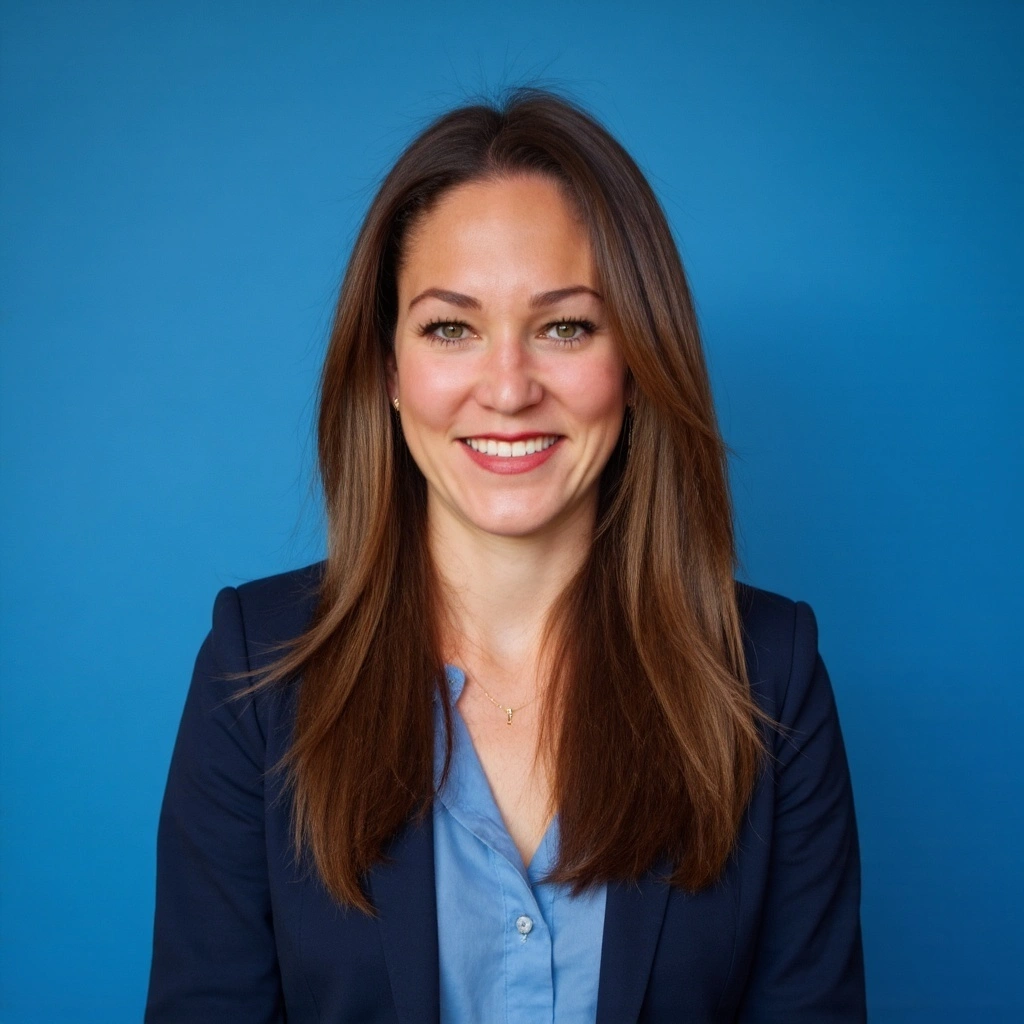
More episodes+

The Multiplier Effect: Funding Companies, Ecosystems, and the Future of the UK
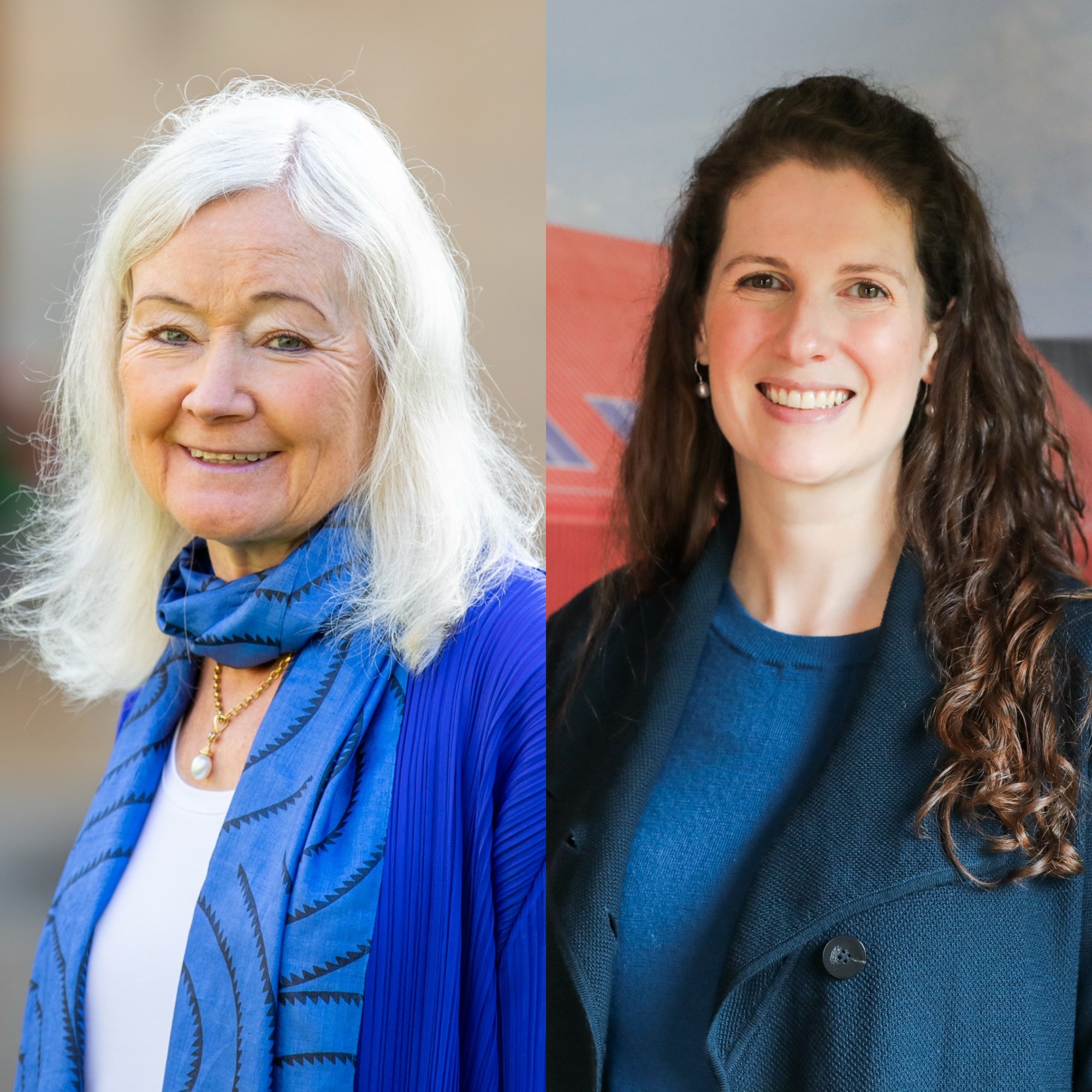
Oxford North: The New Innovation District in Oxford
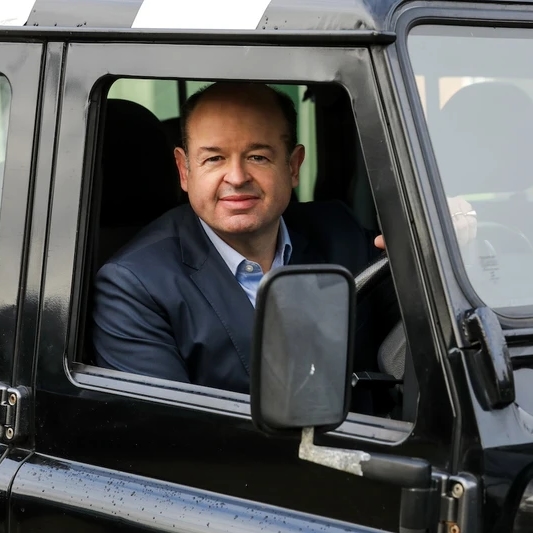
The Cluster Effect: How Bicester Motion is Driving the Future of Mobility
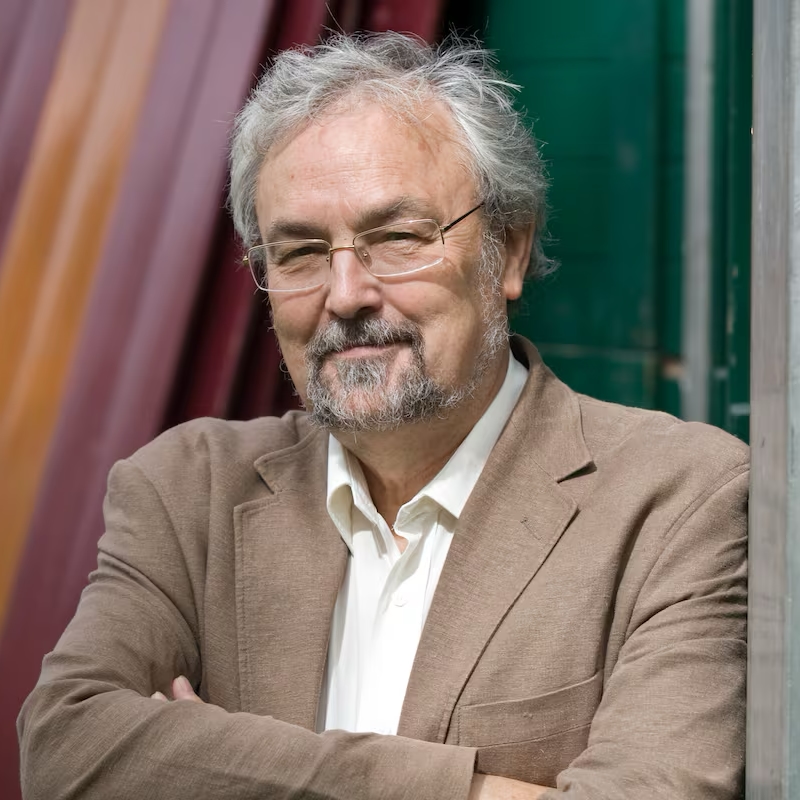
The Psychology of Scaling Companies and Teams with Professor Robin Dunbar: Part 3

The Psychology of Scaling Companies and Teams with Professor Robin Dunbar: Part 2

The Psychology of Scaling Companies and Teams with Professor Robin Dunbar: Part 1

The Future of Genetic Medicine with Zandy Forbes, CEO of MeiraGTx
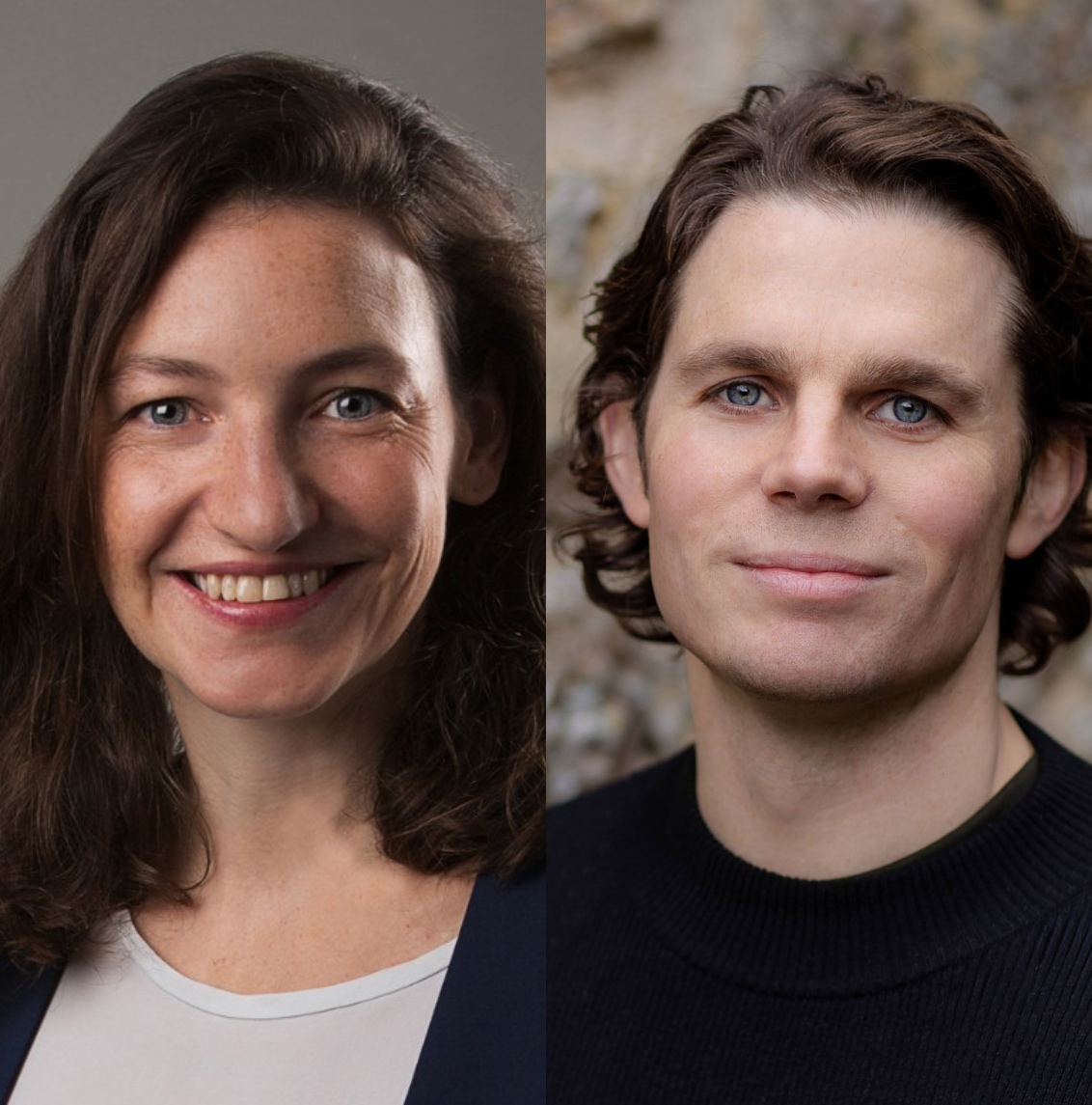
How Founders Pledge Uses Data to Maximise Philanthropic Impact

The Oxford Trust at 40: How Innovation and Education Power Oxford's Future

Can Sirona Rival Ozempic? A New Chapter in Obesity Treatment with Camilla Easter

Aligning Founders and Investors with David Mott

Building Billion-Pound Outcomes with Jack Edmondson

How Machine Learning in Oxford Is Transforming Medicine Worldwide with Lionel Tarassenko

Bringing Science to Society with Molly Stevens

How Oxford University Innovation Bridges Science and Business with Mairi Gibbs
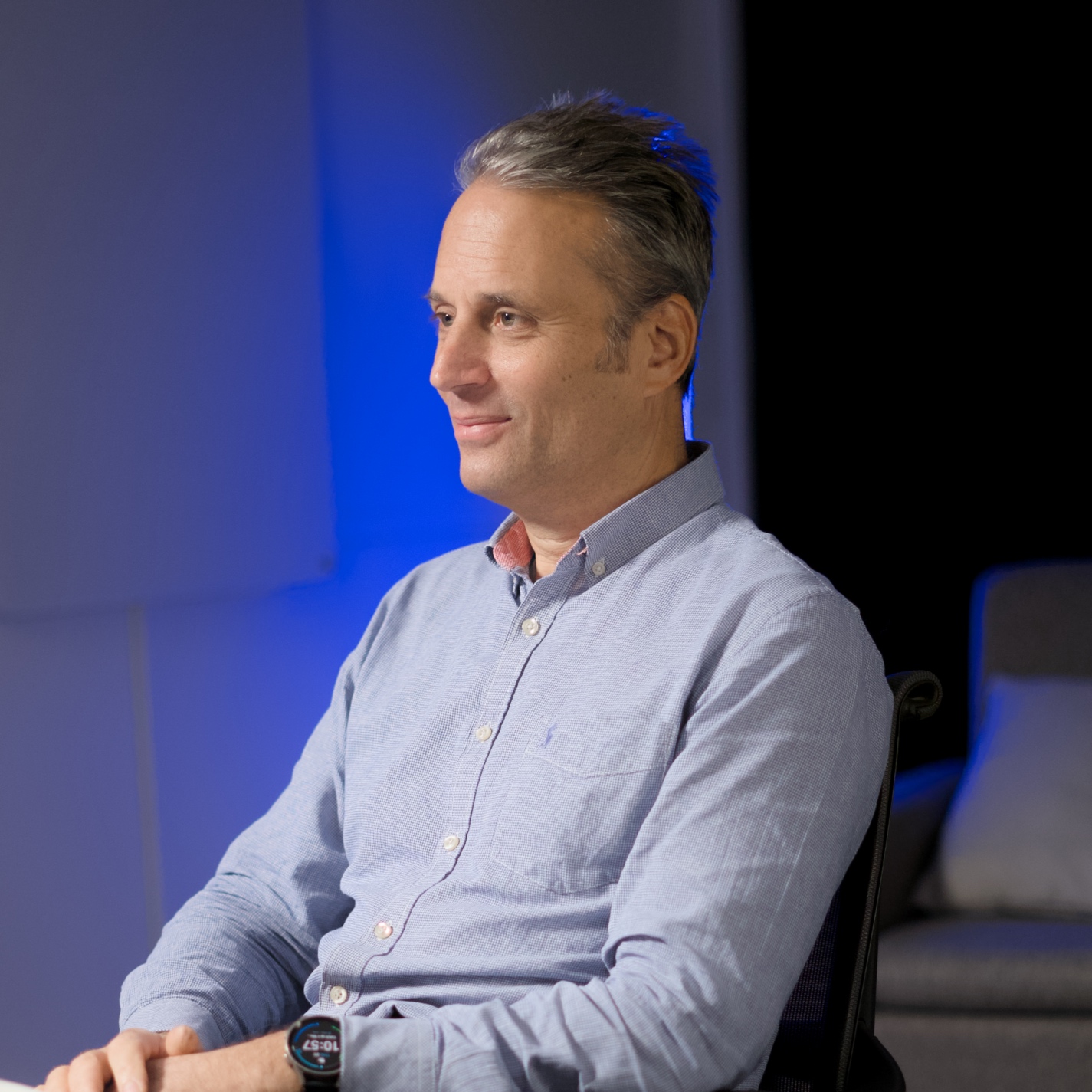
What Formula One Teaches Us About Startups and Success with Adam Parr

Risk and Reward in Early-Stage Tech Investments with George Robinson

Charting Fresh Career Paths with Sue Douglas

From Oxford MBA to Startup CEO with Lily Elsner

Navigating Market Dynamics with Marcus Stuttard

Harnessing Local and Global Talent with Sarah Haywood

Navigating Capital Markets with John Derrick
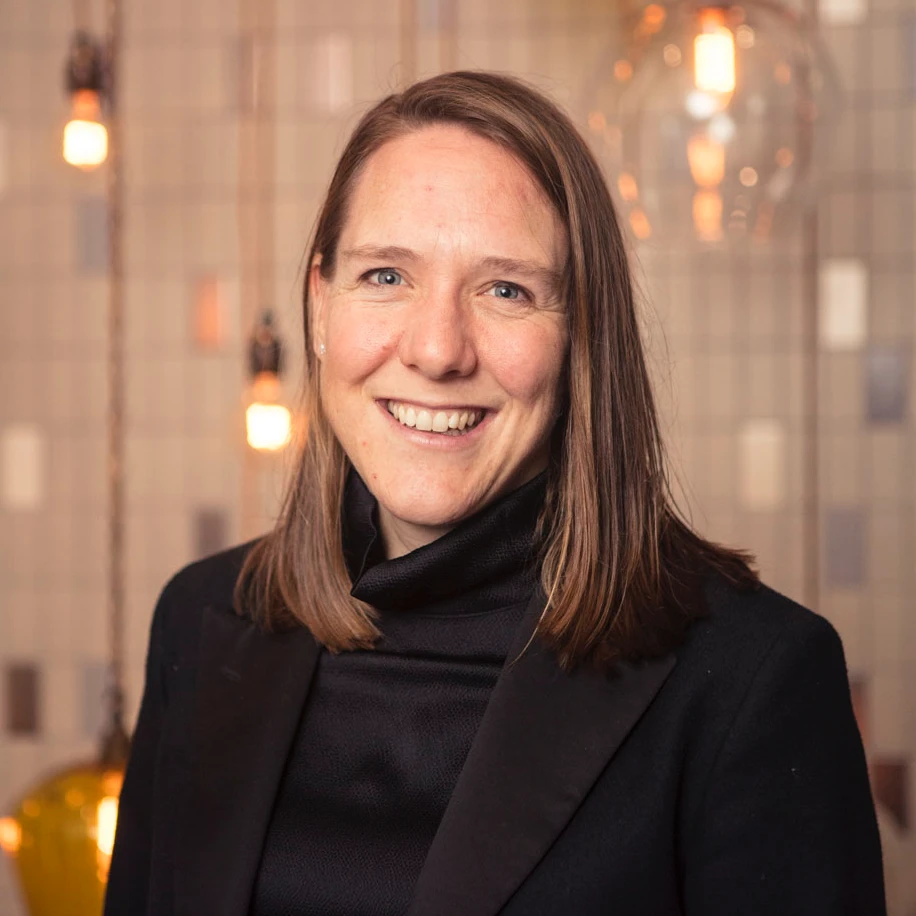
Building Oxford’s Future with Anna Strongman

Breaking the Myths Around University Spin Outs with Irene Tracey

Navigating the Future of Oxford Sciences Enterprises with Ed Bussey

Oxford's Role in the Next Industrial Revolution with Dave Norwood

Diversifying the Investment Ecosystem with Rowan Gardner

Pension Investment and the Mansion House Compact with Nicholas Lyons

Lessons from the Motorsports Cluster with Mark Preston

Nurturing Founder-Driven Ventures in Oxford with Peter Crane
